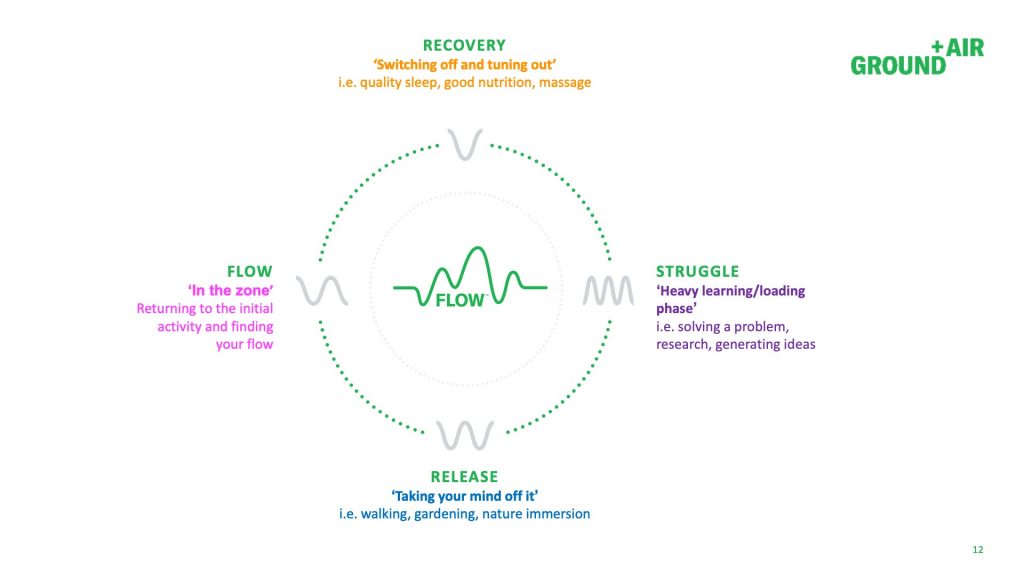Understanding the Flow Cycle
14 June 2023
The four stages of the flow cycle—struggle, release, flow, and recovery—are part of the process through which individuals experience a state of optimal performance and engagement known as “flow.” Flow was first described by psychologist Mihaly Csikszentmihalyi and refers to a state of complete immersion and focus on an activity. Let’s explore each stage in more detail:
- Struggle: The struggle phase is the initial stage of the flow cycle. It occurs when you face a challenging task or goal that requires your full attention and effort. During this stage, you may feel a sense of frustration, confusion, or even anxiety as you grapple with the difficulties of the task. The struggle stage is characterised by a high level of mental and physical energy directed towards problem-solving and overcoming obstacles.
- Release: After experiencing the struggle phase, the release stage follows. This stage involves letting go of the intense effort and mental strain associated with the struggle. In the release stage, you might take a break by going for a short walk, engage in a different activity, or simply relax to allow your mind and body to recover from the initial exertion. It is important to disengage from the struggle and give yourself some mental and physical respite before entering flow state.
- Flow: The flow stage is the pinnacle of the flow cycle, characterised by a state of deep concentration, effortless focus, and complete absorption in the activity at hand. In this stage, you experience a sense of “being in the zone,” where your skills and the challenges of the task are perfectly matched. Time may seem to pass quickly, and you may lose awareness of your surroundings as you become fully engaged in the activity. Flow is often accompanied by a sense of enjoyment, fulfilment, and a heightened sense of control over your actions.
- Recovery: Following the flow stage, the recovery stage allows you to recharge and restore your energy levels. Engaging in flow requires intense mental and physical effort, and it’s essential to give yourself time for recovery to avoid burnout. Recovery may involve rest, relaxation, reflection, or engaging in activities that bring you joy and rejuvenation. By allowing yourself adequate recovery, you can replenish your mental and physical resources, preparing yourself for future challenges and opportunities to experience flow again.
It’s important to note that the flow cycle is not necessarily linear, and individuals may move back and forth between stages depending on the task, their skill level, and external factors. Understanding the flow cycle can help individuals optimise their performance, enhance their enjoyment of activities, and maintain their well-being.



